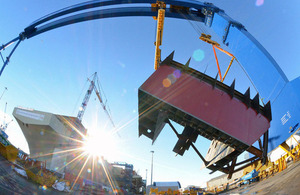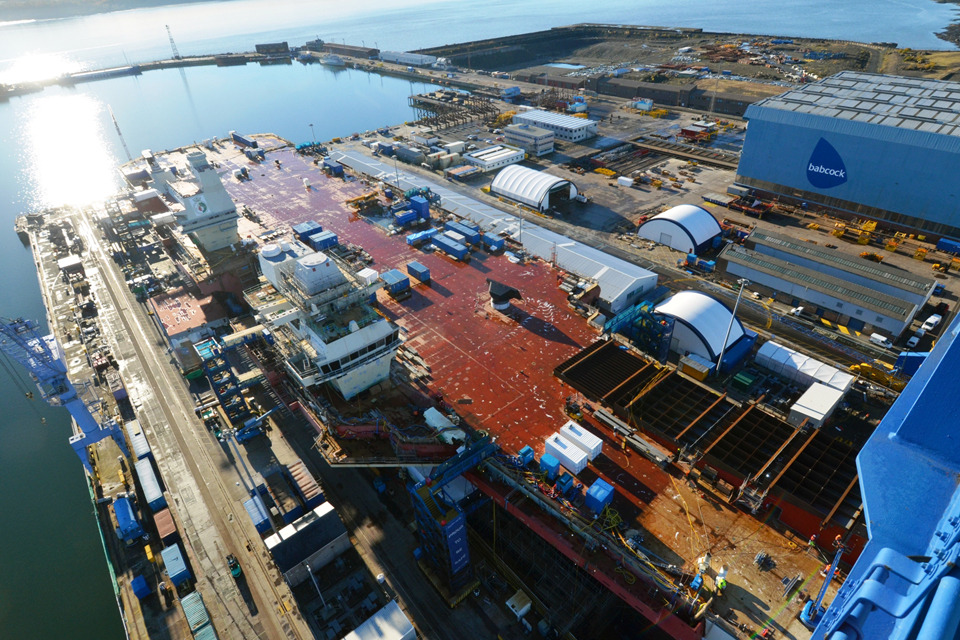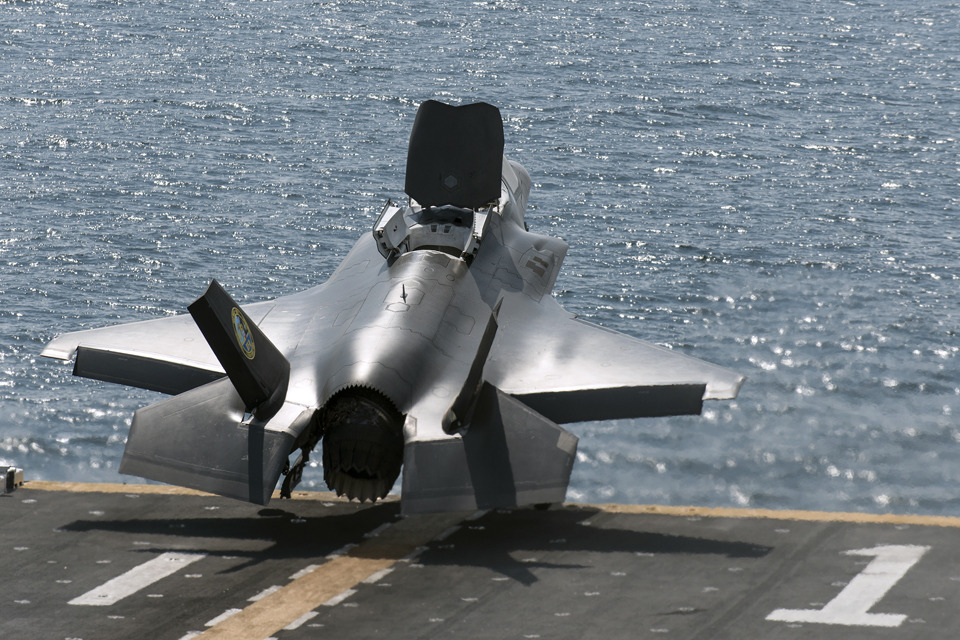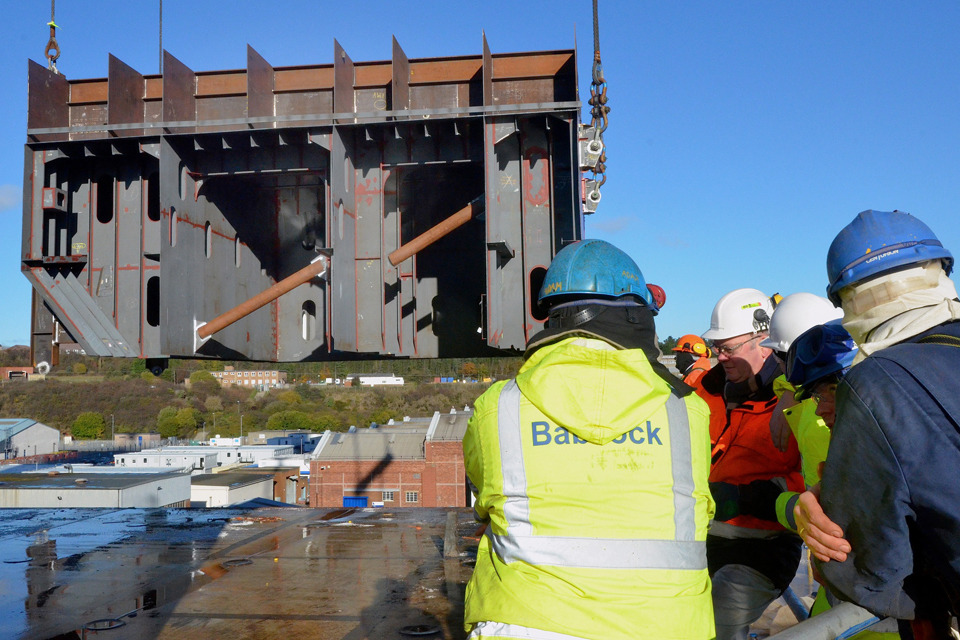Royal Navy aircraft carrier ramping up
The final section of the flight deck of HMS Queen Elizabeth has been fitted onto the Royal Navy's new aircraft carrier.

The 300-tonne section of ramp is lifted onto the Queen Elizabeth [Picture: Aircraft Carrier Alliance]
Pictures released by the Aircraft Carrier Alliance today show the ramp section, which will allow jet aircraft to take off from the ship, being lowered into place at the shipyard in Rosyth, Scotland, where the Queen Elizabeth Class carriers are being constructed.
The 300-tonne section of ramp, which is 64 metres long and 13 metres wide, is the final exterior piece of the aircraft carrier to be fitted. At its highest point, the take-off ramp is 6 metres above the flight deck, which will allow aircraft to be propelled into the air.
The pictures come on the same day as MOD announces that a fourth Lightning II Joint Strike Fighter aircraft has been ordered from Lockheed Martin. The UK has already taken delivery of 3 Lightning II jets and Royal Navy and RAF pilots are training on the aircraft in the USA.
This fourth jet, which is specially designed to be a test aircraft, will help boost the ongoing training available.

The forward ramp section in place on the Queen Elizabeth at the shipyard in Rosyth [Picture: Aircraft Carrier Alliance]
Earlier this year, the first take-off at sea by a UK pilot in a Lightning II took place during a week of trials aboard the United States Marine Corps’ amphibious assault ship USS Wasp.
Philip Dunne, Minister for Defence Equipment, Support and Technology, said:
We are on track to ensuring carrier strike capability by 2020. Both the completion of the take-off ramp and the announcement of the contract for the fourth jet show the tremendous progress being made to ensure that the Royal Navy will have a modern carrier force.
Not only are these jets the most advanced ever operated by our armed forces, but the programme is worth over £1 billion to UK industry each year and will support around 25,000 British jobs over the next 25 years.

An F-35B Lightning II jet takes off from the USS Wasp (library image) [Picture: Todd R McQueen, Lockheed Martin]
MOD’s Chief of Materiel (Air), Air Marshal Simon Bollom, said:
The latest contract for the fourth Lightning II means we are a step closer to realising the ambition of having the most advanced fast jets available for the Royal Air Force and Royal Navy to defend our nation’s interests.
Our strong participation in the test and development of the aircraft has shown the potent capability that this fifth-generation fighter delivers.
It represents the cutting-edge of combat aircraft design and will be a tremendous asset for the UK, so we are delighted with the progress the programme is making.
HMS Queen Elizabeth is due to be structurally complete next year. She will begin her sea trials in 2017 before flight trials with the Lightning II jets get underway in 2018.
As well as operating from the Queen Elizabeth Class carriers, Lightning II will be jointly operated by the Royal Air Force and the Royal Navy from RAF Marham in Norfolk

The 300-tonne section of ramp is lifted onto the Queen Elizabeth [Picture: Aircraft Carrier Alliance]